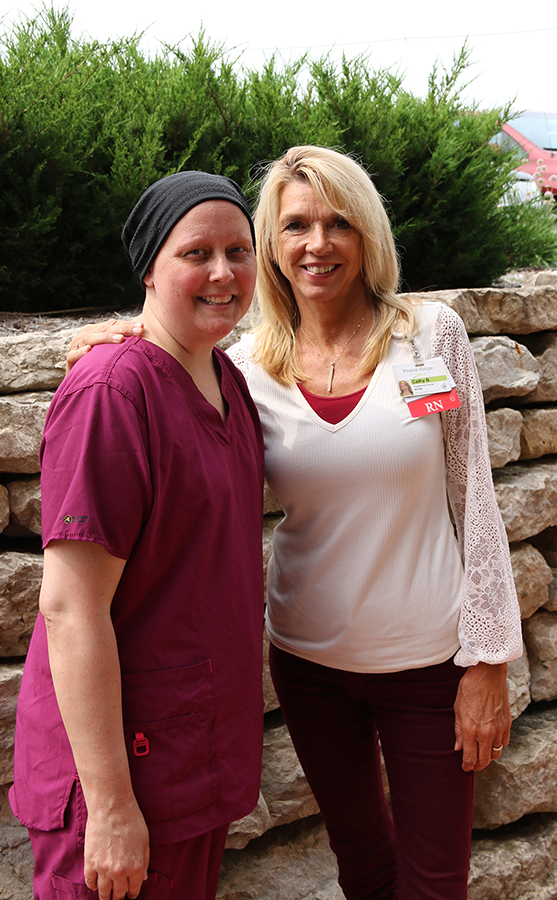 Cathy Bolan, RNC, Cancer Nurse Navigator/Breast Health Specialist at Prairie Ridge Health continues to provide support throughout the pandemic to patients such as Angie Stuelke
Cathy Bolan, RNC, Cancer Nurse Navigator/Breast Health Specialist at Prairie Ridge Health continues to provide support throughout the pandemic to patients such as Angie StuelkeWith only 66.3% of women aged 67-69 (39% age 65-74) receiving annual mammograms in Columbia County (according to a 2019 Community Health Needs Assessment), Prairie Ridge Health has made strides to increase the number of women receiving mammograms by improving access, providing advocacy, and encouraging women to continue to receive annual mammograms.
“Walk-In Wednesdays,” a screening mammogram program at Prairie Ridge Health, allows patients to walk in and receive a screening mammogram on specified Wednesdays during a 6–8-week period without a scheduled appointment.
In 2019, the walk-in program attracted 114 participants, with 32 (28%) of them being new mammogram patients. In 2020, the walk-in program attracted 94 participants with 24 (25.5%) of them being new mammogram patients, as compared to 2017 and 2018 when the walk-in program was first launched with only 3% of mammogram patients being new to the screening.
The breast health and cancer navigation nurse specialist at Prairie Ridge Health is the point person for the walk-in program, checking in the patients at arrival, calling with results following the screening, and providing the support needed to navigate them to the next point of care if additional views or further referrals for care are needed.
“It’s rewarding when you can see someone who at the beginning will be very vulnerable and very shocked and distressed, and you’re able to be with them as they move through their treatment. Hopefully, at the end, they come out more resilient and you’ve supported them through what’s been a very difficult time in their life,” said Cathy Bolan, RNC, ONN-CG; ONC, cancer nurse navigator/breast health specialist at Prairie Ridge Health in Columbus.
Bolan also serves as a support person for patients, assisting them in connecting with virtual support groups and providing follow up to keep mammograms and screenings on track.
“People all have very different needs, so you need to be able to tailor the support that you provide to your patients and their families to help them achieve the best possible outcomes,” added Bolan.